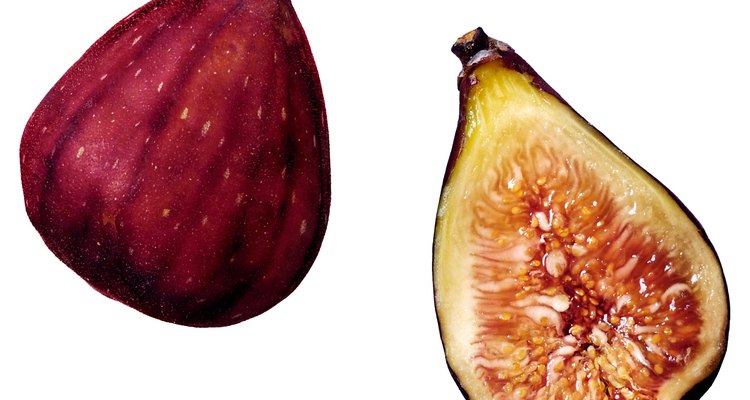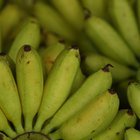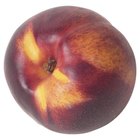
Fresh figs are in season in warmer parts of the country from midsummer through early autumn. Because figs are so perishable, they are often dried, frozen, canned, pickled or used in jams and jellies. If properly stored in the refrigerator, sweet, ripe, delicate figs fresh from the tree retain their quality for two or three days.
Selection
For refrigerator storage, select fully ripe figs that are slightly soft with skin that is close to breaking but shows no splits or cracks. Avoid overripe figs, which have a sour, fermented aroma. Color of ripe figs depends on the variety and may be shades of purple, green or yellow. For example, Black Mission figs are purplish-black while Brown Turkey figs are golden brown. Celeste figs are purplish-brown, Kadota figs are amber, Calimyrna figs are golden and Green Ischia figs are green. Handle figs carefully, as they are delicate and the skin bruises easily.
Refrigeration
Place figs in a single layer on a tray. Place the tray in the coldest part of your refrigerator. This is often in a crisper drawer or in the back of the refrigerator where the temperature is protected from opening and closing of the refrigerator door. If kept cold, figs keep for two to three days. Store figs separately from fresh vegetables, because figs, like many other fruits, produce ethylene gas that causes vegetables to deteriorate rapidly.
Preparation
Preparation of fresh figs is a simple matter. Just wash the fruit under cool running water, then remove the stems with your fingers or the tip of a paring knife. Ripe figs require no peeling, as the outer covering is edible, flavor-rich and loaded with nutrients. Eat ripe figs as is, preserve them or incorporate the figs into recipes. You can also use fresh figs to top ice cream or mix in a fresh fruit salad.
Nutrition
The sweet fruits are rich in important nutrients, including fiber, potassium, magnesium, protein, calcium and iron, as well as vitamins A, C and several B vitamins. One large fig contains about 50 calories. Because figs are highly perishable, immediate refrigeration is critical.
Related Articles

Are Bananas Safe to Eat if the Skin Is ...

How to Freeze Peaches With Lemon Juice

How to Oven-Dry Figs

How to Prevent Bananas From Browning ...

Does Mango Turn Brown?

How to Keep Pineapple From Browning
Can You Make Fig Preserves Out of Dried ...

How to Eat a Kiwano Horned Melon

How to Freeze Fresh Watermelon

How to Freeze Apples With Lemon Juice

How to Make Elderberry Jam

List of Tropical Fruits

How to Freeze Raspberries
How to Freeze Papaya

How to Bake Nectarines Like Peaches

How to Boil Beetroot
How Long Can You Freeze Fresh ...

How to Keep Pomegranate Fresh

How to Keep Fruit Salad Fresh

How to Keep Brown Plantains Fresh
References
Writer Bio
M.H. Dyer began her writing career as a staff writer at a community newspaper and is now a full-time commercial writer. She writes about a variety of topics, with a focus on sustainable, pesticide- and herbicide-free gardening. She is an Oregon State University Master Gardener and Master Naturalist and holds a Master of Fine Arts in creative nonfiction writing.
Photo Credits
Brand X Pictures/Brand X Pictures/Getty Images